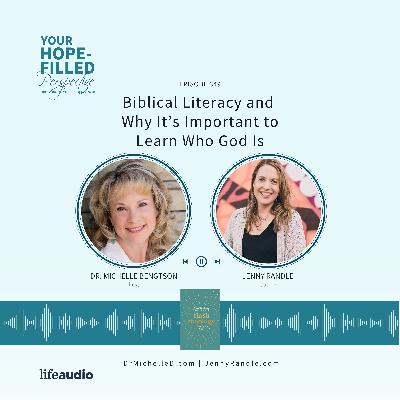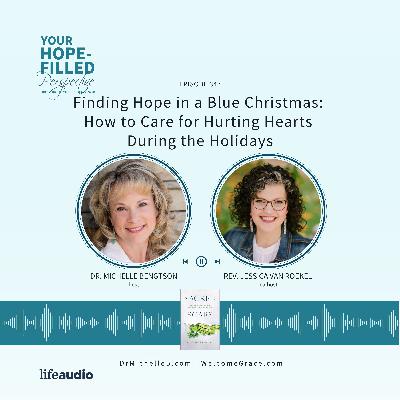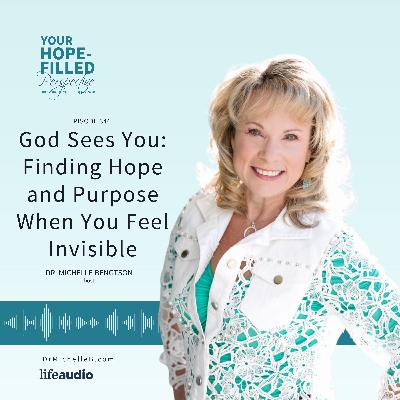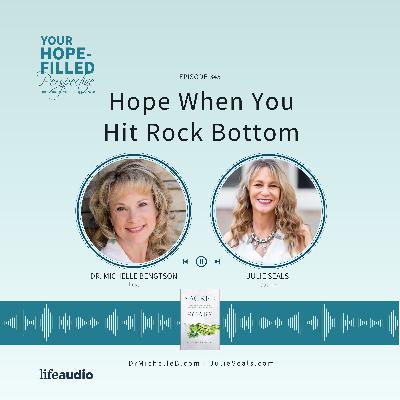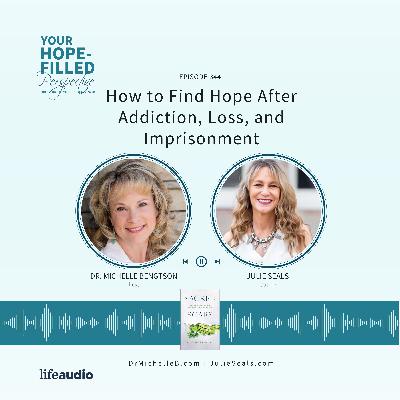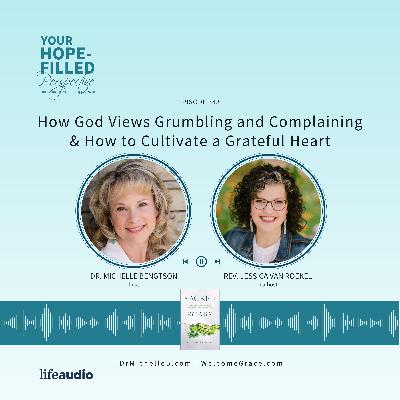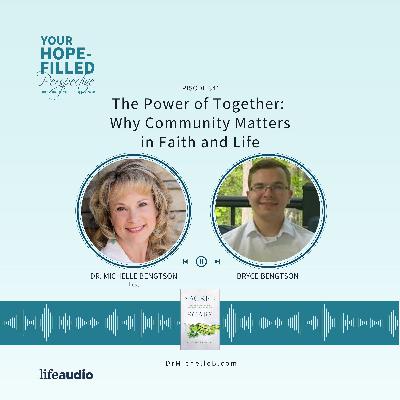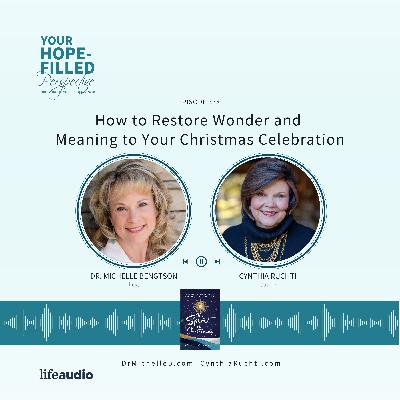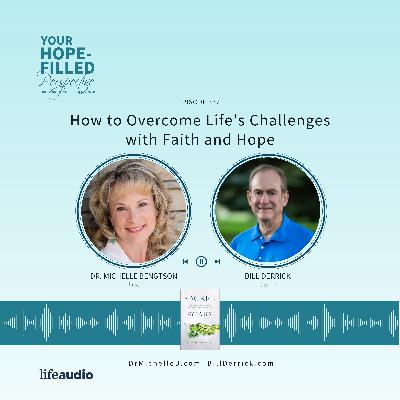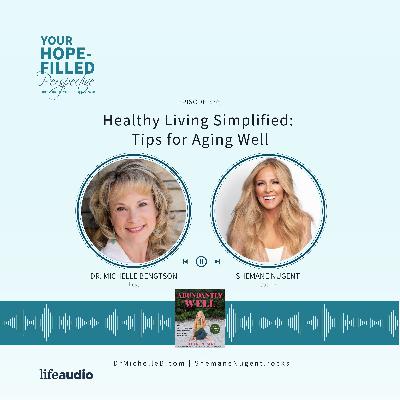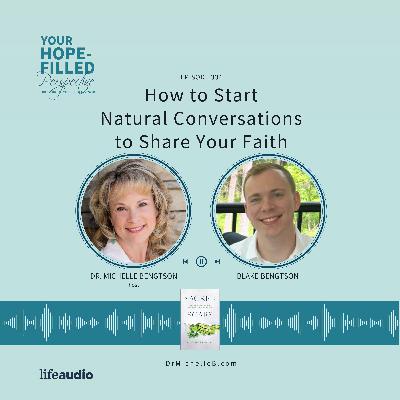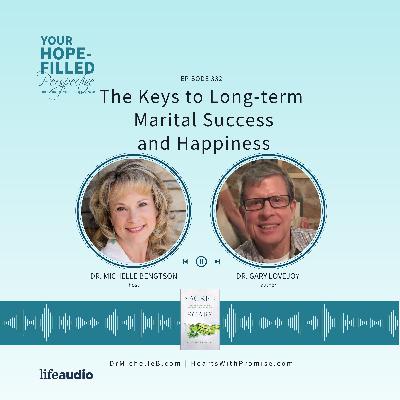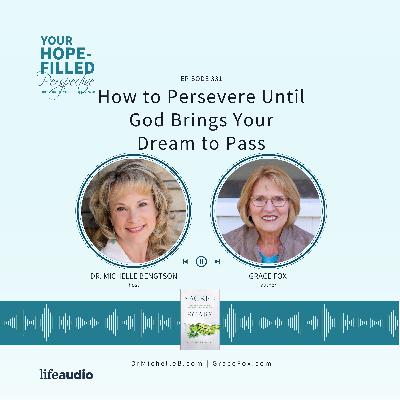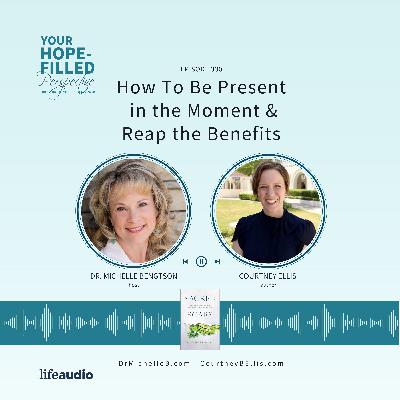Learning to Say No Without Feeling Guilty (Moving from Overwhelmed to Overjoyed)
Description
Episode Summary:
Have you ever found yourself saying yes when you really wanted to say no? Or have you ever felt overwhelmed and exhausted because you were trying to meet everyone else’s expectations? If so, you are not alone. In recognition of National Stress Awareness Day, today, we’re going to explore how to move from overwhelmed to overjoyed by learning to say no without feeling guilty. We’ll dive into Scripture, explore research on overcommitment, and I’ll share five practical ways to set God-honoring boundaries.
Quotables from the episode:
Many of us, especially as women, have been taught that saying yes is the godly thing to do. We associate busyness with productivity, and productivity with worth. But the truth is, constantly saying yes can leave us drained, distracted, and distant from God’s best for us.
For many years, I said “Yes” every time something was asked of me because I believed it was the godly response. Until God impressed upon my heart that he never told me to do that much, and had I sought him for wisdom, He would have readily guided my path! That was totally on me, but God was so gentle in getting my attention.
Psychologists have long studied the effects of people-pleasing and overcommitment. Research from the American Psychological Association shows that chronic overcommitment leads to stress, anxiety, and even depression. Emotionally, people-pleasers often struggle with self-worth, believing their value is tied to what they do for others rather than who they are in Christ.
Chronic Overcommitment and Overwhelm
Chronic overcommitment and overwhelm can take a serious toll on physical health, leading to conditions such as:
- Adrenal Fatigue & Hormonal Imbalance – Constant stress can dysregulate cortisol levels, leading to exhaustion, brain fog, and difficulty managing emotions.
- Cardiovascular Issues – Chronic stress increases blood pressure, heart rate, and inflammation, raising the risk of heart disease, hypertension, and stroke.
- Weakened Immune System – Prolonged stress suppresses immune function, making the body more susceptible to infections and slower to heal.
- Gastrointestinal Problems – Overwhelm can contribute to acid reflux, irritable bowel syndrome (IBS), ulcers, and digestive issues.
- Chronic Pain & Inflammation – Stress triggers inflammation, which can exacerbate conditions like fibromyalgia, arthritis, and migraines.
- Sleep Disorders – Overcommitment often leads to insomnia, poor sleep quality, and chronic fatigue.
- Weight Gain or Loss – Stress-related eating patterns can lead to unhealthy weight fluctuations, metabolic dysfunction, and insulin resistance.
- Muscle Tension & Headaches – Persistent stress can cause tight muscles, tension headaches, and even TMJ (jaw pain from clenching).
- Burnout & Mental Fog – Long-term overwhelm can impair cognitive function, reducing focus, memory, and decision-making ability.
- Autoimmune Disorders – Chronic stress has been linked to the development or worsening of autoimmune diseases such as lupus, rheumatoid arthritis, and multiple sclerosis.
Managing stress through rest, boundaries, and self-care isn’t just about mental well-being; it’s essential for physical health.
Jesus himself set boundaries. In Luke 5:16 , we read, “But Jesus often withdrew to lonely places and prayed.” He didn’t heal every person or meet every need. He sought the Father’s will first. If Jesus set boundaries, then we should, too.
Addressing the spiritual and scientific aspects of restoration
To counteract the physical effects of chronic overcommitment and overwhelm, we must address both the spiritual and scientific aspects of restoration. Here’s how:
- Prioritizing Rest & Sabbath (Biblical & Scientific)
- Biblical Insight: God modeled rest in Genesis 2:2-3, and Jesus regularly withdrew to quiet places (Mark 6:31 ). Sabbath isn’t just a suggestion; it’s a command for our well-being (Exodus 20:8-10).
- Science: Rest lowers cortisol, improves immune function, and enhances brain health. Sleep is crucial for memory consolidation and physical repair.
- Application: Schedule intentional rest. Guard your Sabbath. Ensure 7-9 hours of sleep.
- Setting Boundaries to Prevent Overcommitment
- Biblical Insight: Even Jesus set boundaries—He didn’t heal everyone at once and took time alone with the Father (Luke 5:16 ). Proverbs 4:23 reminds us to guard our hearts, which includes protecting our time and energy.
- Science: Chronic stress leads to burnout, weakened immunity, and heart disease. Learning to say “no” prevents emotional and physical depletion.
- Application: Use discernment in commitments. Before saying “yes,” ask: Does this align with God’s will? Is this sustainable?
- Engaging in Mind-Body Renewal
- Biblical Insight: Romans 12:2 encourages us to renew our minds. Philippians 4:8 tells us to focus on what is pure and lovely.
- Science: Practices like deep breathing, exercise, and gratitude shift the brain out of stress mode, improving mental clarity and resilience.
- Application: Try breath prayers (e.g., inhale “Be still,” exhale “and know that I am God”; inhale “I trust you, God,” exhale “in all things.”). Move daily to reduce inflammation and boost mood.
- Nourishing the Body & Mind
- Biblical Insight: Daniel chose healthy foods and was stronger than those indulging in excess (Daniel 1:12-15). Our bodies are temples of the Holy Spirit (1 Corinthians 6:19-20).
- Science: Whole foods reduce inflammation, regulate blood sugar, and protect against stress-related illnesses.
- Application: Eat nutrient-dense foods, stay hydrated, and avoid excess caffeine or sugar that heightens stress responses.
- Seeking Community & Support
- Biblical Insight: Ecclesiastes 4:9-10 teaches that two are better than one. We weren’t designed to carry burdens alone (Galatians 6:2).
- Science: Social connection lowers stress hormones, strengthens immunity, and increases resilience.
- Application: Surround yourself with godly counsel. Delegate. Accept help. Community is part of God’s design for our well-being.
- Releasing Control & Trusting God
- Biblical Insight: Jesus said, “Come to me, all who are weary… and I will give you rest” (Matthew 11:28 ). Trusting God’s sovereignty brings peace (Isaiah 26:3).
- Science: Chronic stress stems from feeling out of control. Releasing worries to God reduces anxiety, lowers blood pressure, and improves mental health.
- Application: Regularly surrender your burdens to God. Journal prayers. Meditate on Scriptures about His faithfulness.
By aligning our lives with God’s rhythms and applying scientific wisdom, we can reduce overwhelm and prevent burnout and experience lasting peace.
Practical Tips for How to Set Healthy, God-Honoring Boundaries
- Recognize that “No” is a Complete Sentence
- You don’t need to over-explain or justify your decision. Jesus simply said “yes” or “no” (Matthew 5:37 ). When we recognize that saying no is a way to honor God’s best for us, we can do so with confidence.
- Pray Before You Commit
- Proverbs 3:5-6 reminds us, “Trust in the Lord with all your heart and lean not on your own understanding; in all your ways submit to him, and he will make your paths straight. ”Before saying yes to anything, take a moment to pray and ask, Is this God’s best for me in this season?
- Set Priorities Based on God’s Calling
- Ephesians 2:10 tells us that we are created for good works that God prepared in advance for us. This means that we are not called to do everything—only what He has specifically prepared for us. Identify what God is calling you to do in this season and let that guide your commitments.
- Understand That Saying No Opens the Door for God’s Yes
- When we fill our schedules with obligations, we leave no room for the divine appointments God has for us. Saying no creates margin for God’s greater yes. Isaiah 30:21 says, “Whether you turn to the right or to the left, your ears will hear a voice behind you, saying, ‘This is the way; walk in it.’”
- Practice Saying No with Grace and Love
- You can say no in a way that honors both God and the other person. Here are a few ways:
- “Thank you for thinking of me, but I can’t commit to that right now.”
- “I appreciate the opportunity, but I need to focus on what God has called me to in this season.”
- “I’d love to help another time, but my plate is full right now.”
- You can say no in a way that honors both God and the other person. Here are a few ways:
Encouraging Scripture to Empower You: Learning to say no without feeling guilty
- Galatians 1:10 – “Am I now trying to win the approv


